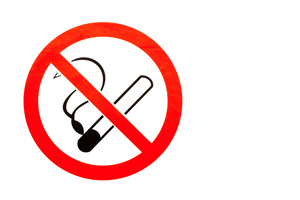Writing at reason.com, Jacob Sullum poses a pointed question. Why should adult US smokers pay, potentially with their lives, for the carelessness of convenience store clerks?
He said that the moral logic of the trade-off demanded by the US Food and Drug Administration escaped him.
Sullum, who is a senior editor at Reason magazine, was commenting on the FDA’s proposed efforts to address what it sees as a vaping ‘epidemic’ among young people – efforts that include limiting the flavor options of vaping products sold in most stores to those claimed to be least likely to appeal to the young. Stores that fail to check properly the ages of people buying such products are seen by the FDA as a major supplier to young people.
Critics of the vaping industry, Sullum said, portrayed the flavors that the FDA wanted to ban from stores that admit minors as evidence of a conspiracy to hook the youth of the US on nicotine. The FDA had a more sophisticated understanding of the market but was still far too willing to sacrifice the interests of adult smokers in the name of fighting an ‘epidemic’ of underage e-cigarette use.
Sullum quotes the FDA Commissioner Scott Gottlieb as saying or implying on several occasions that switching adult smokers to vaping could have an unprecedented, positive health impact.
And he says it follows that making e-cigarettes less appealing and less accessible has a public health cost, measured in smoking-related diseases and deaths that otherwise would not have occurred.
Category: People

A reasonable question

Standardized packs coming
Thailand’s Public Health Ministry yesterday approved a draft regulation requiring cigarettes to be sold in standardized packaging, according to a story in The Bangkok Post.
In addition, the regulation will require changes to be made to the compulsory graphic warnings currently included on packs.
The Public Health Minister, Dr. Piyasakol Sakolsatayadorn, said the regulation had been approved by the ministry’s national tobacco control committee, which he chairs.
Under the regulation, cigarette packs would not be allowed to include brand logos, promotional text or non-designated colors.
Piyasakol predicted that Thailand would become the 11th country but the first Asian nation to impose standardized cigarette packaging.
However, he did not say when this might occur.
Piyasakol said also that the pictures that were part of the health warnings currently included on cigarette packs would be changed.
They had been in use for five years and people might be overly familiar with them, reducing their effectiveness.
Hong Kong asked to reflect
Fontem Ventures, the business behind blu® e-vapor products, today submitted to the Hong Kong Chief Executive’s office evidence that vaping can contribute to tobacco harm reduction and potentially improve health outcomes for Hong Kong’s adult smokers.
“We are asking the Hong Kong government to reconsider their proposal for a blanket ban on vaping, which will impact the lives of current adult vapers, and those smokers who may consider switching to a potentially less harmful product,” said Hon Lik, the inventor of the original e-cigarette and a consultant to Fontem Ventures’ research & development team.
“We understand Hong Kong’s cautious stance on vaping and its concern over the reports of vaping by minors in the US,” he said. “Nevertheless, prohibition is likely to be counter-productive, and the evidence from countries including the US and the UK suggests pragmatic regulation of vaping can help accelerate declines in smoking rates among adults.”
In its filing, Fontem said e-vapor devices should be made legal for purchase by adults in Hong Kong, and that adult smokers should be empowered to make informed choices.
"Ludicrous" ban proposed
Tobacco smoking could be banned in town- and city-centers in Wales if Mark Drakeford succeeds in becoming the next first minister, according to a story at bbc.com.
The Welsh Labour leadership candidate has included the plan in his manifesto for the contest.
Drakeford wants also to ban smoking in outdoor areas of cafés and restaurants.
Smoking was banned in enclosed public places in Wales in 2007. It is now banned in cars where children are present. And it is set to be banned in the grounds of schools and hospitals next summer.
Wales would become the only part of the UK to ban smoking in city centres if the Drakeford proposals were implemented.
Drakeford, considered to be the favourite to win the Welsh labour leadership election, tried to legislate for a partial ban on electronic cigarettes in 2016, but the law was binned after members of Plaid Cymru withdrew their support.
His manifesto proposes to ‘extend [the] smoking ban to outdoor areas of cafés and restaurants and city and town centres’.
“It is very important that we press ahead with reducing the level of smoking here in Wales,” Drakeford reportedly told BBC Wales.
But he denied he would want to ban tobacco smoking outright.
“We already have bans on smoking on beaches in parts of Wales,” he said. “This is a proposal to take this further.”
Meanwhile, the UKIP assembly leader Gareth Bennett was quoted as saying: “As health minister, Mr Drakeford led a crusade against vapers, and now he wants to hit smokers by a ludicrous ban on people lighting up in outdoor places such as cafés.”
Nanny nominees named
The smokers’ group Forest Ireland has announced the shortlist for its Golden Nanny Awards to be held in Dublin next week.
The annual event, launched last year, honors politicians, NGOs and individuals who support ‘nanny state’ regulations on lifestyle issues including smoking tobacco, drinking alcohol or eating ‘unhealthy’ foods.
Among those shortlisted for awards are the Minister for Health Simon Harris; the former health minister Dr. James Reilly; the former minister of state for health promotion Marcella Corcoran Kennedy; Professor Donal O’Shea, clinical lead for obesity, Health Service Executive; Dr. Patrick Doorley, chairman, ASH Ireland; Dr. Bobby Smyth, board member, Alcohol Action Ireland; and Eunan McKinney, head of communications and advocacy, Alcohol Action Ireland.
‘Following the introduction of campus smoking bans, Trinity College Dublin, University College Dublin and the University of Limerick have also been shortlisted for a “Nanny”, Forest Ireland said in a press note.
‘Another nominee, the Restaurants Association of Ireland, has been shortlisted after its chief executive gave a “cautious welcome” to a ban on smoking in outdoor dining areas.’
John Mallon, spokesman for Forest Ireland, said the Golden Nanny Awards celebrated excellence in finger-wagging and an unhealthy desire to intervene in other people’s lives.
“This year’s shortlist is particularly strong,” he said. “Choosing the winners will be difficult because every nominee deserves a Nanny.
“The judging panel will examine the evidence very carefully before deciding who should receive one of these coveted awards.”
The Golden Nanny Awards are organised by Forest [Freedom Organisation for the Right to Enjoy Smoking Tobacco] Ireland and supported by Students for Liberty Ireland.
The winners of the 2018 awards will be announced at a dinner in Dublin on November 20.
Little faith in plain packs
An opinion poll published today by the smokers’ campaign group Forest EU reveals that there’s no overwhelming public support for more tobacco control measures in the EU.
The opinion poll conducted by Populus for Forest EU found that 56 percent of respondents agreed that measures to tackle smoking had gone far enough.
It found that of 10 key health objectives, curbing tobacco consumption was seen as the second least important issue for the European Commission’s DG SANTE to focus on.
And it found that only three percent of respondents thought the introduction of standardized tobacco packaging was the most effective way of reducing youth smoking rates. This figure compares with the 52 percent in favor of mandatory education in schools about the health risks of smoking; the 23 percent in favor of harsher penalties for shopkeepers caught selling tobacco to minors; and nine percent in favor of a ban on adults buying cigarettes for children.
“Lobby groups hostile to tobacco consumption are campaigning for the EU institutions and national governments to introduce new rules they believe are fundamental to eradicating smoking,” said Guillaume Périgois, director of Forest EU. “What this poll shows however is that there is relatively little public support for further extreme anti-smoking measures.
“What is similarly clear is that EU voters support a common-sense approach to tobacco control. Regulation should not be made at the behest of taxpayer-funded lobby groups but based on trustworthy, independent evidence.
“A significant number of European adults smoke, and enjoy doing it, and their contribution to society is substantial. The best way for the next European Commission to signal a move away from an excessively bureaucratic approach would be to prioritize actions in the areas that EU citizens clearly see a need.
“The results of this survey show that Forest EU’s positions are representative of those held by smokers in Europe. Like Forest EU, 73 percent of European smokers think tobacco control measures have gone far enough, 47 percent think curbing tobacco use should be DG SANTE’s bottom priority and 80 percent think bars, cafés and restaurants should have the legal option to provide a separate, well-ventilated smoking room.”
Populus interviewed 6,167 adults aged 18+ online in France (1,024), Germany (1,036), Poland (1,040), Romania (1,029), Italy (1,018) and Spain (1,020), with interviews being conducted between May 25 and May 31, 2018. These member states were said to cover 60 percent of the EU population with 310 million citizens and a diversity in smokers’ habits, tobacco control policies and historical factors.
Populus – Attitudes towards tobacco policies in the EU is available here.
Forest EU advocates for the consumer, not the tobacco industry, but is supported by the Confederation of European Community Cigarette Manufacturers (CECCM) whose members are Japan Tobacco International (JTI), British American Tobacco (BAT) and Imperial Brands PLC (IMB), and by the members of the European Smoking Tobacco Association (ESTA). Forest EU’s annual budget in 2018 is €165,000.
No answer to poisoning
The EU Commission has said that the issue of improving health and agricultural safety in Zimbabwe features in regular policy dialogues with the Government.
The Commission was responding to questions from an Italian member of the EU Parliament, who had asked the Commission what steps it was taking to reduce the risk of tobacco poisoning among tobacco farmers and their families.
In a preamble to her questions, Barbara Matera said that when the proper safety procedures were not adhered to, the risk of tobacco poisoning among farmers was high.
‘Zimbabwe, in particular, has experienced a large number of tobacco poisoning cases, which can be attributed to a lack of education about the condition and a lack of funding for the proper preventive equipment,’ she said.
‘This sickness also greatly affects children who help out with the harvest in rural areas.’
Matera said tobacco was Zimbabwe’s largest export product, and its largest agri-food export to the EU, before asking:
‘What is the Commission doing to promote education among tobacco exporters?’
‘What can the Commission do to provide adequate equipment and protection for farmers, especially those with children?’
In its written reply, the Commission said the 11th European Development Fund National Indicative Programme (€234 million), envisaged support for health, agriculture-based economic growth and governance in Zimbabwe.
‘The Commission does not provide support to the production of tobacco in Zimbabwe,’ it said. ‘However, agriculture being the backbone of Zimbabwe’s economy, the Commission provides substantial support to agricultural resilience and production and supports value-chains for products such as beef, chicken or dairy aiming at creating jobs.
‘The Commission is also one of the main contributors to the Health Development Fund managed by the United Nations Children’s Fund. This Fund aims at guaranteeing that the population can access comprehensive and effective health services and at strengthening health systems to improve the level of care.
‘The issue of improving health and agricultural safety also features in the regular policy dialogue with the Government.
‘Zimbabwe is a Party to the World Health Organization Framework Convention on Tobacco Control. Article 17 recognises the need to promote economically viable alternatives to tobacco production to prevent adverse impacts on populations whose livelihoods depend on it. Article 18 covers the protection of the environment and the health of persons in respect of tobacco cultivation and manufacture. Zimbabwe has benefited from sharing of experience and provision of technical assistance for the implementation of these articles.’
Lowest-ever smoking rate
The incidence of smoking among South Korea’s adult men last year dropped to the lowest level officially recorded, according to a story in The Hankyoreh.
Ministry of Health and Welfare (MHW) figures indicate that the incidence or smoking among adult men (those who have smoked more than five packs in their lifetime and continue to smoke) was 38.1 percent in 2017, down from 40.7 percent the previous year.
This is the lowest level recorded since the government began conducting health and nutrition surveys in 1998.
The MHW said that national anti-smoking campaigns, which began in 2016, might have contributed to this decrease.
It's time to talk
The website for the sixth Global Forum on Nicotine (GFN) is now online.
The conference will be held at the Marriott Hotel, Warsaw, Poland, on 13-15 June 2019.
The conference, whose theme is, It’s time to talk about nicotine, is due to include plenary sessions, symposia, panel discussions, poster presentations, and satellite sessions.
The program committee is inviting abstracts for oral presentations, deadline February 10, and posters, deadline March 31. Abstracts should be submitted online.
The committee will use selected abstracts to construct themed sessions over the coming months. Authors will be informed if their abstracts have been accepted before the posting of the near-final program by April 22.
The organisers are making available up to three scholarships for early-career researchers who are chosen to make oral presentations.
Once again, the International Symposium on Nicotine Technology (ISoNTech) will run alongside GFN18.
New Imperial board member
Imperial Brands has appointed Sue Clark as an independent non-executive director of the company.
Clark is due to join the Board from December 1 and to become a member of both the Remuneration and the Succession and Nominations committees.
In a note posted on its website, Imperial said Clark had significant international executive-committee and board-level experience in the FMCG, regulated transport and utility sectors.
‘She held a number of senior commercial positions during a 13-year career with SABMiller plc, including managing director Europe and director of corporate affairs.
‘Sue is a member of the Supervisory Board and Remuneration Committee at Akzo Nobel N.V., a non-executive director and chair of the Remuneration Committee at Britvic plc, a non-executive director and member of the Remuneration and Audit Committees of Bakkavor Group plc and a non-executive director of Tulchan Communications LLP and Heriot-Watt Business School.
“I’m delighted to welcome Sue to Imperial Brands,” chairman Mark Williamson was quoted as saying.
“Her international experience in FMCG and regulated businesses together with her experience in major corporate transactions and governmental and regulatory relations will be a great asset to the Board.”









